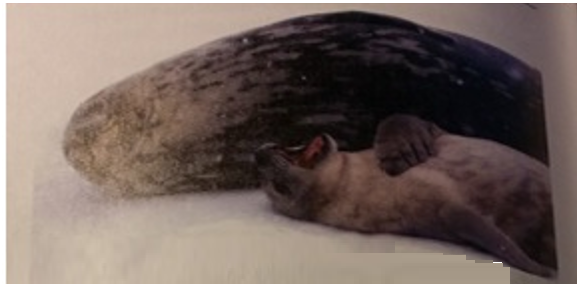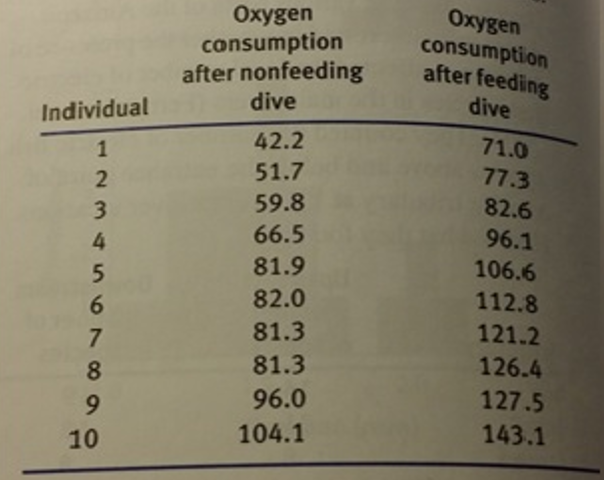Question
Weddell seals live in the Antarctic and feed on fish during long, deep dives in freezing water. The seals benefit from these feeding dives, but
Weddell seals live in the Antarctic and feed on fish during long, deep dives in freezing water. The seals benefit from these feeding dives, but the food they gain comes at a metabolic cost. The dives are strenuous. A set of researchers wanted to know whether feeding per se was also energetically expensive, over and above the exertion of a regular dive (Williams et al. 2004).

They determined the metabolic cost of dives by measuring the oxygen use of seals as they surfaced for air after a dive. They measured the metabolic cost of 10 feeding dives and for each of these also measured a nonfeeding dive by the same animal that lasted the same amount of time, the data, in (ml O 2 kg ?1 ), are as follows:

a. Estimate the mean change in oxygen con-sumption during feeding dives compared with nonfeeding dives.
b. What is the 99% confidence interval for the population mean change?
c. Test the hypothesis that feeding does not change the metabolic costs of a dive.
Individual 1 2 3 4 5 6 7 8 9 10 Oxygen consumption after nonfeeding dive 42.2 51.7 59.8 66.5 81.9 82.0 81.3 81.3 96.0 104.1 Oxygen consumption after feeding dive 71.0 77.3 82.6 96.1 106.6 112.8 121.2 126.4 127.5 143.1
Step by Step Solution
3.54 Rating (157 Votes )
There are 3 Steps involved in it
Step: 1
a 746800 mean nonfeeding 1064600 mean feeding 317800 mean difference nonfeeding feedi...
Get Instant Access to Expert-Tailored Solutions
See step-by-step solutions with expert insights and AI powered tools for academic success
Step: 2

Step: 3

Document Format ( 2 attachments)
60965122bf907_26787.pdf
180 KBs PDF File
60965122bf907_26787.docx
120 KBs Word File
Ace Your Homework with AI
Get the answers you need in no time with our AI-driven, step-by-step assistance
Get Started


